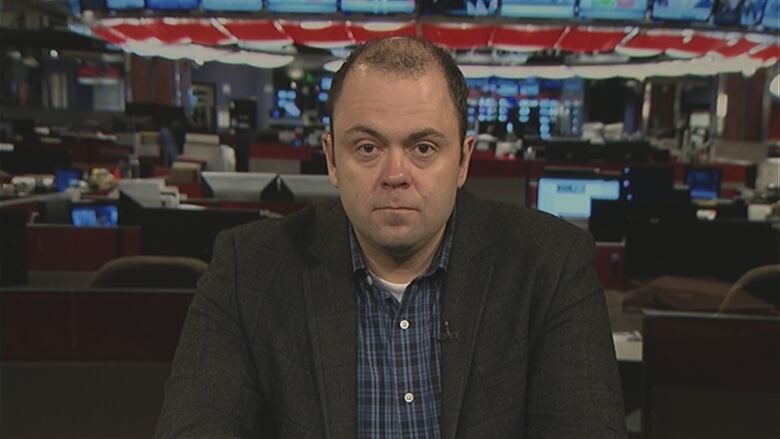DFO says it couldn't have prevented whale rescuer Joe Howlett's death
Fisheries dept. promises revamped program on whale disentanglement, but some say it isn't talking to experts
Canada's Department of Fisheries and Oceans has "found no evidence" it could have prevented the 2017 death of whale rescuer Joe Howlett, according to its own review.
The investigation report, written in February, was never meant to be public.
That changed earlier this week, after the public learned the DFO violated two sections of the Canada Labour Code by not providing Howlett, of Campobello Island, N.B., with protective headgear during his whale rescue mission.
- Fisheries officials violated labour code by not providing 'protective headgear' to whale rescuer who died
- Rescue team frees 1st entangled whale since 2017 death of volunteer Joe Howlett
"Given the unique nature of this particular case, a decision was made to release it when the [Canada Labour Code] report was released as well," said Adam Burns, director general of fisheries resource management with DFO.
Howlett was a volunteer whale rescuer but was working on a federal work site — a DFO vessel — when he was struck and killed by the tail of a North Atlantic right whale he had freed from heavily tangled rope in the Gulf of St. Lawrence.

DFO's internal investigation didn't identify any actions or procedures that might have changed the outcome of that day.
"Unfortunately, there was nothing that could have been done to avoid it," Burns said.
DFO creating national whale rescue program
Both investigations called for a number of changes, including better rules on what kind of safety measures should be in place for non-federal employees working on a DFO work site.
In the future, Burns said, volunteer whale rescuers will be made to wear helmets if they find themselves on a DFO vessel, working to free a whale.
"We've implemented a number of improvements to our protocols to ensure that in each and every circumstance, human safety is taken into account as paramount, that responders have the appropriate equipment."
The department will also unveil a national disentanglement program by March 31 that will ensure "human safety takes top priority and safety equipment is available."

Disentanglement practices vary across the country. On the West Coast, DFO uses in-house expertise to free entangled whales, while using unpaid volunteers like Howlett on the East Coast.
Burns said the government will be looking to train more people in how to disentangle whales. That could include DFO employees and people outside the government such as scientists and fishermen.
"We're focused on finding individuals who have the right set of skills, the right personality to do this."
Newfoundland whale rescuers not consulted
According to Burns, the government has consulted experts as it builds its national program.
Two veteran whale rescuers say they haven't been consulted.
Jerry Conway, a member of Howlett's Campobello Whale Rescue Team, told Radio-Canada earlier this week that no one from his team was interviewed about what happened to Howlett.
The federal government also didn't speak to Wayne Ledwell, head of Newfoundland and Labrador's Whale Release and Strandings Group.

Ledwell questions how DFO can create a national program on disentanglements without talking to East Coast experts.
"The expertise is not in-house at DFO. The expertise is with the groups in the field who have this experience working with whales."
Ledwell suggested it would be difficult to create a disentanglement policy that everyone must follow because each region rescues different mammals, using different gear.
In Newfoundland, about 85 per cent of the rescues have involved freeing humpback whales, according to Ledwell.
"We have rules and guidelines from 40 years of working with whales here."
DFO is responsible for overseeing whale disentanglement under the federal Species At-Risk Act.
It hands out licences and permits to third-party whale rescue groups such as the Campobello Whale Rescue Team and Ledwell's Whale Release and Strandings Group.
Those organizations then sign contracts with the federal government to provide the service.

